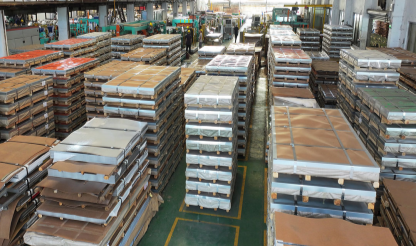
Stainless steel surface treatment
1. Common surface treatment types
Mechanical surface treatment: change the surface texture or finish by physical methods.
2B surface (cold rolling + annealing + pickling). Features: slightly reflective, smooth, general purpose. Used in kitchenware, construction, industrial equipment
BA surface (bright annealing) Features: high brightness, close to mirror surface. Used in high-end decoration, electronic products
No.1 (hot rolling + pickling) Features: rough, grayish white. Used in industrial equipment, structural parts
No.3 (grinding and polishing) Features: short grain frosting, anti-fingerprint. Used in elevators, home appliance panels
No.4 (brushed surface) Features: long grain matte, wear-resistant. Used in architectural decoration, kitchenware
HL (hair grain surface) Features: fine grain, scratch-resistant. Used in door frames, electrical appliance housings
Sandblasting Features: matte, rough texture. Used for industrial equipment and sculptures
2. Surface treatment requirements of different industries
The architectural decoration industry uses No.4 brushed, HL hairline, and PVD coated surfaces, which are beautiful, fingerprint-resistant, and corrosion-resistant
The food and medical industry uses BA mirror and electrolytic polished surfaces, which are easy to clean and sterile
The home appliance industry uses 2B, sandblasting, and powder spraying surfaces, which are scratch-resistant and beautiful
The automotive industry uses passivation and electroplating surfaces, which are corrosion-resistant and wear-resistant
The electronics industry uses BA surfaces and ultra-thin precision belt surfaces, which are high-precision and anti-oxidation